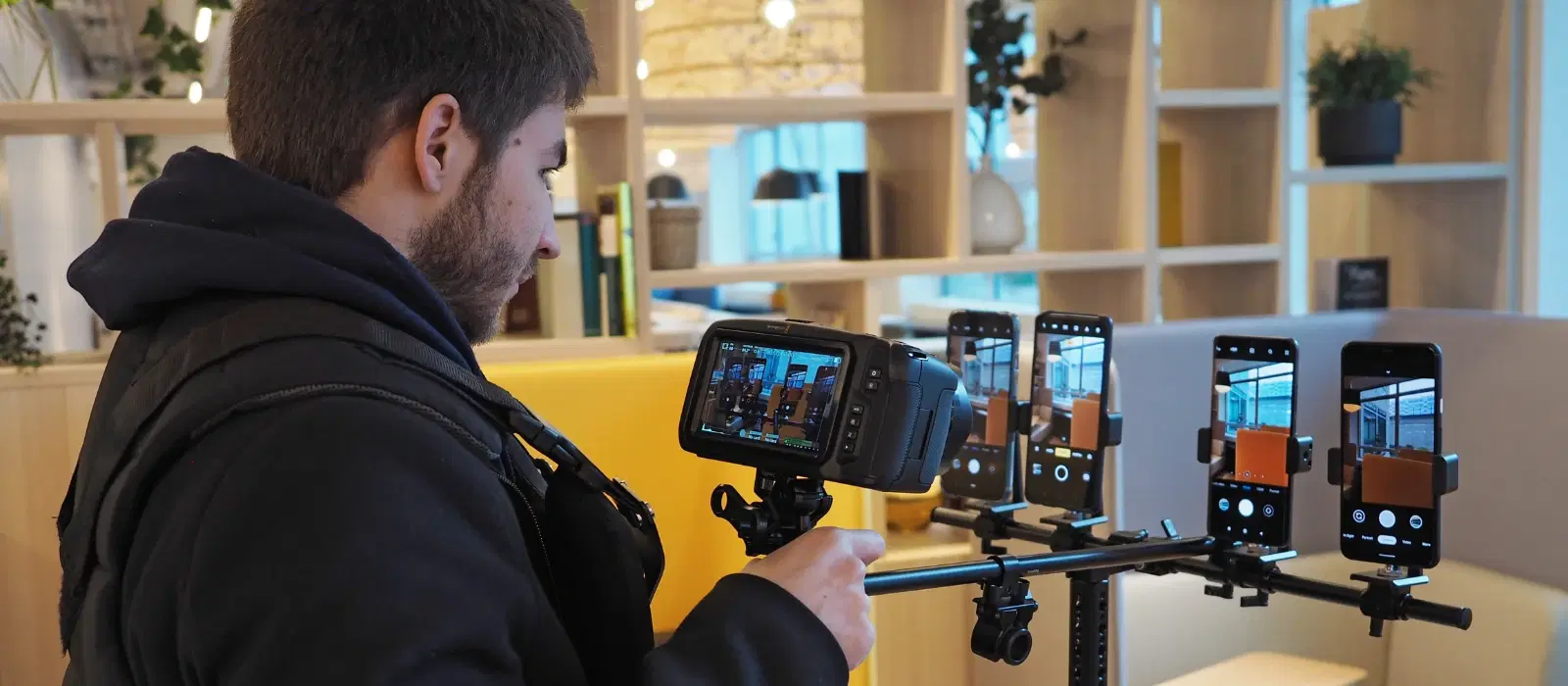
Consumer Electronics
•06 min read
A functional phone display is crucial for performing everyday tasks, from sending messages to watching videos. Ensuring that your phone screen is in top condition can significantly enhance your user experience. In this guide, we will walk you through how to check phone display and troubleshoot common issues to maintain optimal performance. Regular diagnostics can prevent minor issues from becoming major problems, ensuring that your smartphone remains reliable and enjoyable to use.
Having a clear and functional display is essential for a seamless user experience. A damaged or malfunctioning screen can hinder your ability to interact with your device, affecting everything from reading text to playing games. Common display issues include dead pixels, discoloration, and touch sensitivity problems, which can disrupt your daily activities. Regular diagnostics can help you catch these issues early, potentially saving you from costly repairs or replacements.
Start by visually inspecting your phone screen for any cracks, scratches, or physical damage. Ensure the screen is clean and free from smudges, as dirt and grime can affect touch sensitivity and display clarity. If you find any physical damage, consider using a screen protector or case to prevent further issues.
Adjust the brightness settings to see if the display responds correctly. Use a solid color background to check for discoloration or dead pixels. A uniform color should appear consistent across the screen without any dark spots or color variations. This test can help you identify areas of the screen that may not be functioning correctly.
For Android devices, you can access Developer Options to run built-in screen tests. For example, on Samsung devices, you can use the code *#0*# to access a diagnostic menu that includes various tests for your display. This menu allows you to check for dead pixels, color accuracy, and touch sensitivity issues.
iOS devices have built-in diagnostics accessible through the Apple Support app. Alternatively, you can use third-party apps for detailed diagnostics to check for issues like dead pixels and touch sensitivity problems. These tools provide a comprehensive overview of your screen's health and can help you identify any underlying issues.
Several third-party apps can help you diagnose display issues. Apps like Display Tester and Dead Pixels Test and Fix are popular choices. These apps offer various tests to check for dead pixels, color accuracy, and touch sensitivity. They are user-friendly and provide detailed instructions to help you interpret the results.
Download and install your chosen app from the app store. Follow the on-screen instructions to run the diagnostics. The app will guide you through various tests, and you can interpret the results to identify any issues with your display. Regular use of these apps can help you maintain your screen's performance and catch problems early.
Dead pixels are tiny spots on the screen that do not light up. You can identify them by displaying a solid color background and looking for dark spots. Some apps can help fix dead pixels by cycling through colors rapidly, which may revive the stuck pixels. If the issue persists, professional repair may be necessary.
If your touch screen is unresponsive or inaccurate, you may need to recalibrate it. On Android devices, you can do this through the Developer Options. For iOS devices, a restart or software update may resolve the issue. If the problem continues, consider seeking professional help to diagnose and fix the issue.
Discoloration and lines on the screen can be caused by hardware issues or software glitches. If a software update does not resolve the problem, you may need professional repair services. It's important to address these issues promptly to prevent further damage to your device.
Check for visible cracks, scratches, and discoloration. Perform a touch sensitivity test to ensure the screen responds accurately. Regular diagnostics can help you catch issues early, preventing more serious damage.
Yes, some apps can help revive dead pixels by cycling through colors rapidly. However, if the issue persists, professional repair may be needed. It's important to address dead pixels promptly to prevent them from spreading.
Try restarting your device or performing a software update. If the issue continues, recalibrate the touch screen or seek professional help. Regular maintenance can help prevent touch sensitivity issues from occurring.
Yes, apps like Display Tester and Dead Pixels Test and Fix are reliable options for diagnosing screen issues. These apps provide detailed instructions and comprehensive tests to help you maintain your screen's performance.
Regular diagnostics every few months can help maintain optimal performance and catch issues early. This proactive approach can extend the life of your device and ensure a smooth user experience.
Tata Neu offers a seamless shopping experience with exclusive rewards like NeuCoins, expert advice, and reliable after-sales support. You can enjoy additional savings with the Tata Neu HDFC Bank credit card and benefit from express delivery for urgent needs. With Tata Neu, you can shop confidently, knowing that you have access to the best products and services.
Regular screen diagnostics are essential for maintaining a functional and clear display. By following the steps outlined in this guide, you can identify and troubleshoot common display issues. Explore Tata Neu’s range of smartphones and take advantage of their expert after-sales support and rewards program for a seamless and rewarding experience. Maintaining a functional phone display ensures an enhanced user experience, making everyday tasks more enjoyable and efficient. With Tata Neu, you can trust that your tech needs are in good hands, offering you peace of mind and exceptional value.